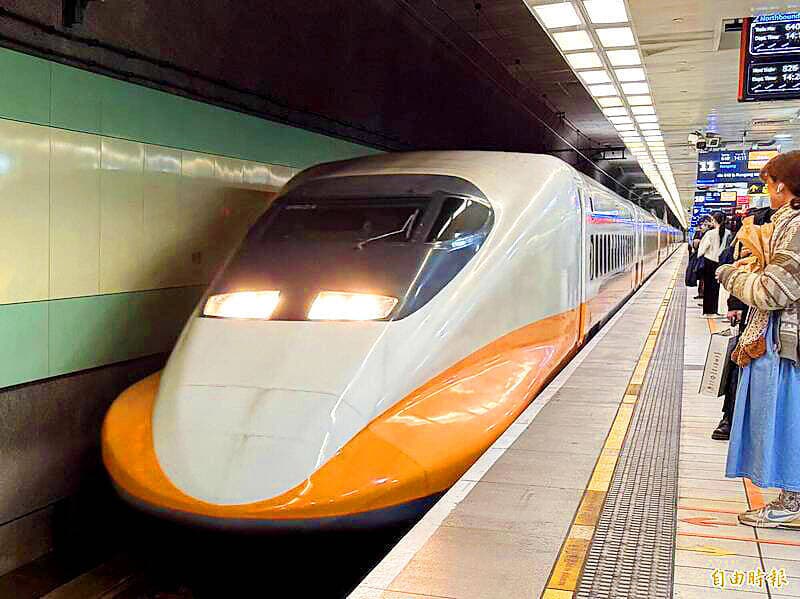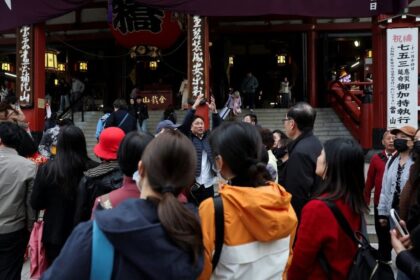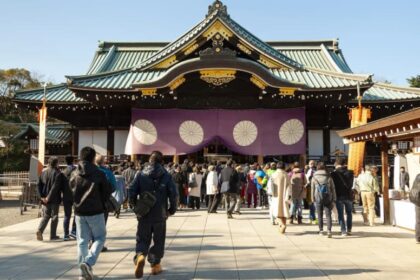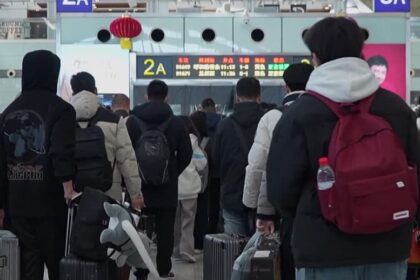Why Taiwan is tightening early boarding on high speed rail
Starting Nov 10, Taiwan High Speed Rail Corp will require passengers holding reserved seats to exchange their ticket before taking an earlier train on the same day. This ends a long running courtesy that allowed travelers to board earlier trains and sit in nonreserved cars when plans changed at the last minute. The company says heavy use of the workaround has degraded travel quality and left many booked seats empty on the original departures.
- Why Taiwan is tightening early boarding on high speed rail
- What exactly changes on Nov 10
- Who is affected and who is not
- Why THSR is making the change now
- How to exchange your ticket quickly
- Travel planning tips for busy days
- What changes are coming for nonreserved travel
- Quiet travel rules join the list of changes
- What to Know
On average, more than 60,000 reserved seats go unoccupied each month despite being booked. On busy weekends and holidays, earlier services have been packed with standees in nonreserved cars while reserved cars on the original trains left with empty seats. The imbalance affects comfort, safety, and ticket availability for passengers who need seats. Ridership has been climbing toward record levels in 2024 and 2025, which magnifies the strain on platforms and carriages across the north south corridor.
THSR frames the new rule as a return to standard rail practice. Reserved seat tickets will again be treated strictly as a reservation for a specific departure and seat. Requiring an exchange before boarding is intended to release those reserved seats back into the pool for the earlier service so they can be sold and used, instead of sitting empty on the train the passenger no longer intends to ride.
What was the flexible boarding practice
Until now, if plans changed at the last minute, a passenger with a reserved seat could present the ticket and board an earlier train, then move to the nonreserved cars. The original reserved seat remained locked on the later departure and could not be resold. The automatic gates also allow entry up to one hour before the printed departure, which made it easy to reach the platform for an earlier train. The courtesy began as a rare exception for emergencies and unexpected delays in getting to the station, but it steadily became a shortcut for hundreds of riders each day.
What exactly changes on Nov 10
From Nov 10, if you hold a reserved seat and want to depart earlier, you must exchange your ticket for the new train before boarding. The updated ticket will show the new train number and seat assignment. Without an exchange, a reserved seat ticket is valid only for the date, train, and route printed on the ticket. Station gates will continue to open one hour before the time on your original ticket, which gives a window to complete the exchange on site or on your phone before you approach the platform.
THSR will set up designated windows at stations for ticket exchanges. Travelers who purchased electronic tickets can change reservations on the T Express app or through online booking. Staff can assist passengers who need help due to sudden medical or family issues.
How the rule will be enforced
Station staff will no longer manually wave reserved seat passengers through to earlier trains. Train crews will check tickets onboard. If the seat or train does not match, you may be asked to move and could be directed to return to the concourse to complete an exchange. Earlier trains that used to be crowded with standees in nonreserved cars should see less congestion once exchanges release reserved seats into inventory on those services.
Who is affected and who is not
The change applies to travelers holding reserved seat tickets, including discounted reserved seat products such as early bird fares, group seats, and standard reserved seats. If you want to move to an earlier departure, you need to exchange the reservation to the new train before boarding.
Passengers using nonreserved tickets are not affected. Nonreserved tickets remain valid for any train on the date and route shown, with access to the designated nonreserved carriages. Many commuters also enter nonreserved cars using stored value cards at the gates. That practice continues, although capacity rules during the busiest periods are expected to tighten next year.
What if you face an emergency
THSR says station staff can help passengers who must travel earlier because of medical situations or family emergencies. Use the station help points or approach the service counter. Staff can expedite an exchange if seats are available, or advise on alternatives if the earlier service is full.
Why THSR is making the change now
The company links the policy shift to two pressures, unused reservations and rising demand. When a rider with a reserved seat boards an earlier train without exchanging, the original seat often remains locked for sale up to departure, even though the passenger is no longer on that train. Those locked seats add up. THSR cites an average of more than 60,000 reserved seats each month that went unoccupied despite being booked.
At the same time, early trains have become crowded in nonreserved cars, with travelers standing for long stretches between major cities like Taipei, Taichung, and Kaohsiung Zuoying. According to THSR, exceptions that allow standees beyond the usual nonreserved carriages occur on about 8 percent of all services, and rise to around 20 percent in peak periods. THSR carried 78.25 million passengers in 2024 and projects ridership to surpass 80 million in 2025. With such volumes, the company says it needs clearer rules to balance comfort, safety, and fairness.
The passenger contract behind the rule
The Passenger Transportation Contract states that a reserved seat ticket is valid only for the specific date, train number, and route section on the ticket. A ticket without a reserved seat is valid for the date and route section, but it does not include a guaranteed seat. Requiring earlier travelers to exchange brings daily practice back in line with that contract.
How to exchange your ticket quickly
Exchanges can be done at staffed counters in stations or on your phone for digital bookings. Build in a few extra minutes at the station, especially on weekends and holidays.
At a station counter
- Go to the designated ticket change window with your ticket and ID if requested.
- Ask to exchange to your desired earlier departure. Staff will check seat availability and fare conditions.
- Confirm the new train number, car, and seat, then receive a reprinted ticket.
- Proceed through the gates and board your new train.
On the T Express app or website
- Open your booking and choose change or exchange.
- Select a new departure time and confirm the seat offered.
- Complete the exchange and display the updated QR code at the gates.
- Keep a screenshot in case of connectivity issues at the platform.
Some discounted tickets have stricter change deadlines. If you booked an early bird fare, complete any change no later than 30 minutes before departure and carry the identification number that is printed on your ticket for inspection. Rules for refunds and changes follow the Passenger Transportation Contract.
Travel planning tips for busy days
Weekend and holiday departures fill fast. If your plans are flexible, pick less crowded times, such as mid morning or early afternoon, instead of right at the start or end of long weekends. Book seats as soon as your schedule firms up. If you need flexibility, consider a nonreserved ticket for short hops where standing is acceptable. Arrive early at major stations like Taipei, Banqiao, Taichung, Tainan, and Zuoying, so you have time to exchange or explore alternatives if the train you want is full. If you travel as a family or group, sit together in reserved cars to avoid separation in busy nonreserved carriages.
What changes are coming for nonreserved travel
THSR is preparing additional crowd management steps that target nonreserved travel on the busiest days. The operator plans to pilot rules that restrict nonreserved access during peak hours in 2026, and may designate some services as nonreserved trains at peak periods to better balance demand. Today, three or four carriages are normally set aside for nonreserved riders. During peak times, staff sometimes allow standing in more cars to protect safety at platforms. That flexibility will be curbed under the new rules to keep flows orderly and prevent delays.
To steer demand, THSR is also testing deeper discounts for off peak travel on select dates, including limited offers at 50 percent off during consecutive holiday weekends. The company expects to add 12 new train sets in 2028, which will relieve pressure over the medium term, but it is taking interim steps now to keep trains moving smoothly as ridership grows.
Quiet travel rules join the list of changes
The ticket exchange requirement arrives alongside new quiet travel guidance. Since late September, riders are asked to keep phones on silent, use headphones for music and video, and move to vestibules for phone calls. Train crews promote the rules with messages on seat backs, platform screens, and onboard announcements. Persistent violators can be asked to leave the train. Transport officials stress the guidance targets controllable behaviors like loud calls or unmuted devices, not babies or children. Staff will assist parents and travelers with special needs and ask nearby passengers for patience.
What to Know
- From Nov 10, reserved seat holders must exchange their ticket before boarding an earlier train on the same day.
- The change seeks to cut unused reservations, which average more than 60,000 seats a month, and reduce crowding in nonreserved cars.
- Exchanges are available at station windows and through the T Express app or online booking.
- Automatic gates open one hour before the time printed on your original ticket, which leaves time to complete an exchange.
- Nonreserved tickets are unaffected and can be used on any train on the date and route shown, subject to space in the designated cars.
- THSR plans to tighten nonreserved access during peak hours in 2026 and to add new trains in 2028.
- Quiet travel rules are in effect. Use headphones for media and make calls in vestibules.












